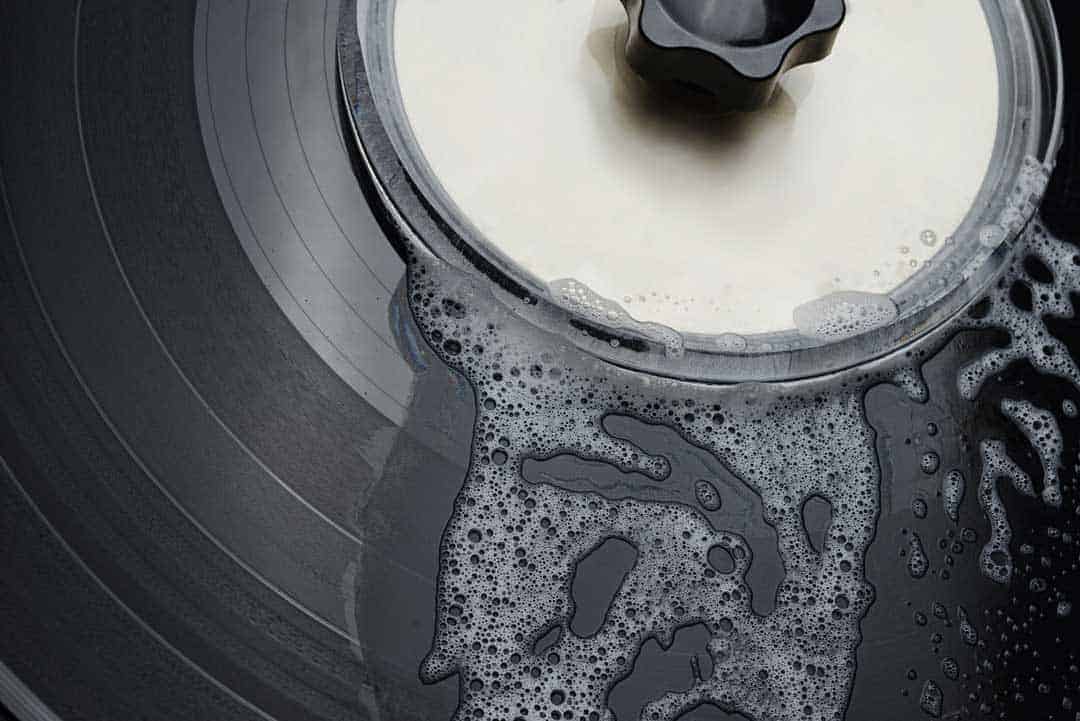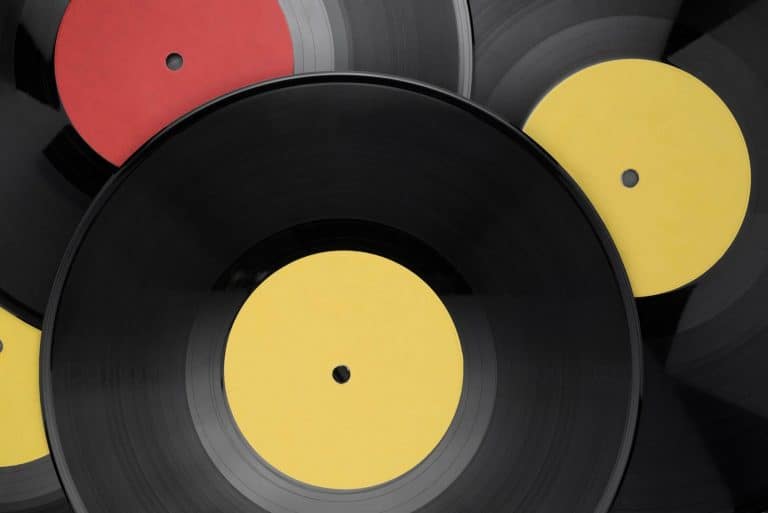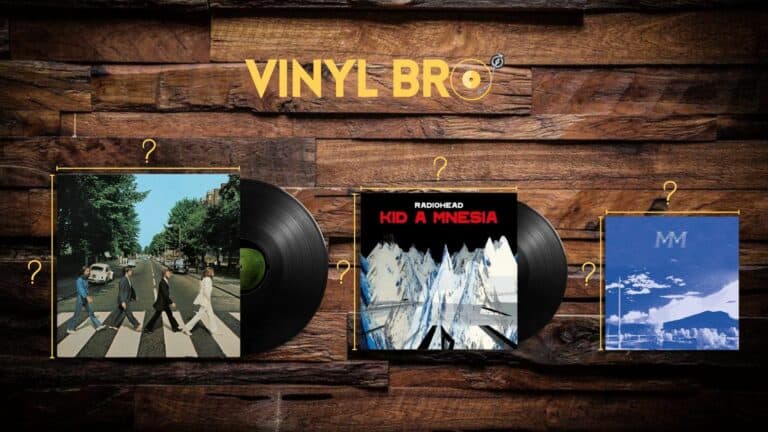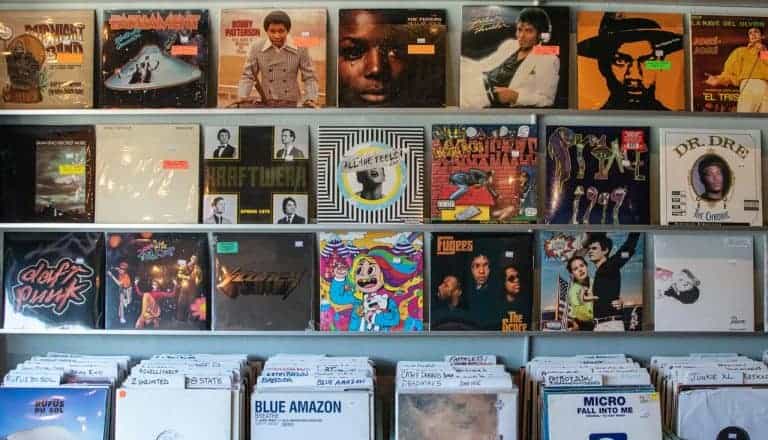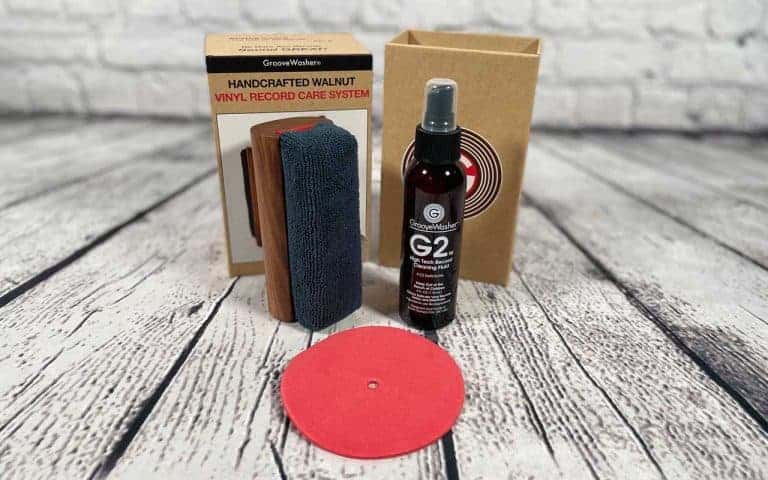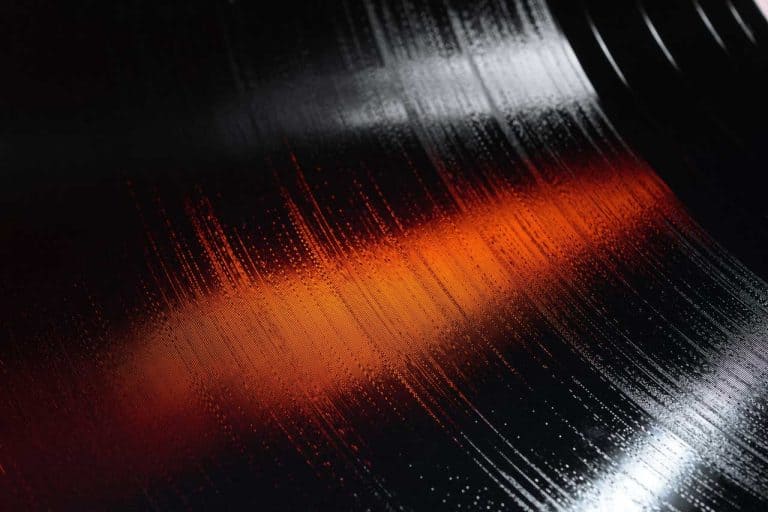Does Water Ruin Vinyl Records? Water damage? Records Get Wet
Maybe you just do not have a record cleaner and want to know if you can use water. Maybe you spilled water on your brand new record? Or maybe, unfortunately, your house flooded and your vinyl records got soaked? This does not have to be the end of the world. As a matter of fact, there is an almost 100 percent chance that everything is perfectly ok, let me explain.
Does water ruin vinyl records? Water does not damage the vinyl records themselves. If your inner sleeve, outer jacket, or label in the center of your record got water on them there is a good chance that they will be damaged. However, if your vinyl records got wet you should be ok as water does not ruin vinyl records.
If your house flooded or you got water on your records there is no need to panic. We are here to help walk you through the details on what can be damaged, why it can be damaged and how to fix or replace the damaged, record related items.
Can You Put Water On Vinyl Records? Can Records Get Wet?
If you have ever thought about putting your vinyl records in the water we can say if done properly everything will be fine. Vinyl is made from ethylene or crude oil, and chlorine to form a hard synthetic plastic called polyvinyl chloride. This plastic is not harmed by water just like most plastics.
There are some things you want to keep in mind when putting vinyl records in water. It is best if you use distilled or deionized water in order to remove all potential deposits and contaminants from the water. You do not want to use tap water as calcium deposits and chemicals can leave behind residue on the vinyl record itself.
The labels in the center of your album are made of paper and they are glued on with a semi water-soluble glue. This means even getting a drop of water on the label could severely damage the center label especially if the water stays on the label.
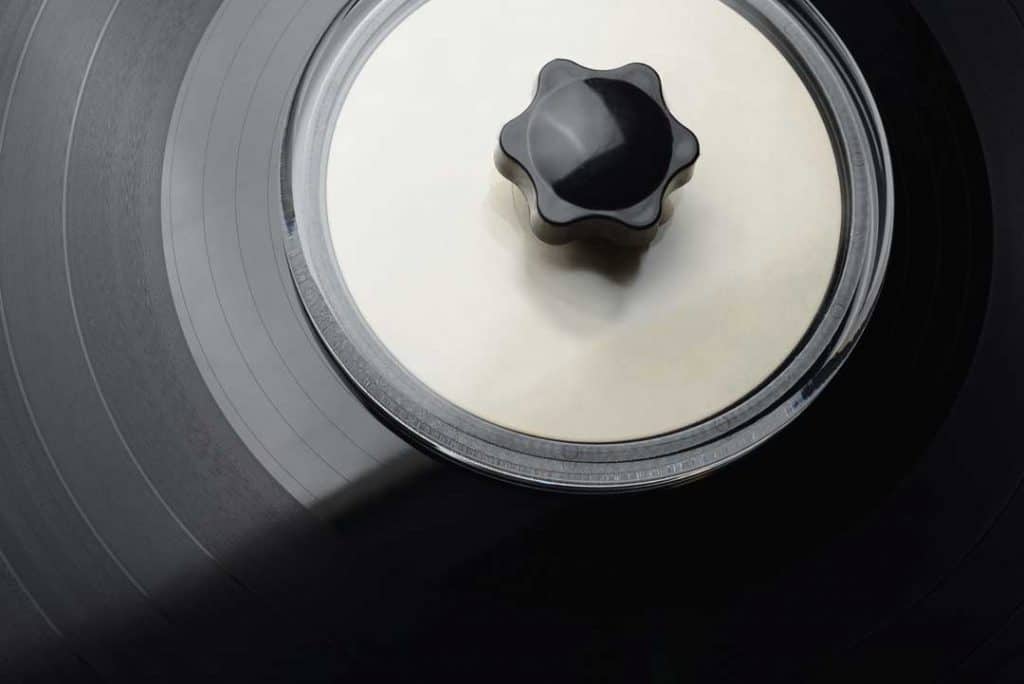
If you are going to put your records in the water we recommend protecting the center label with a waterproof clamp for record labels. The only downside is that these are not universal. While they will protect most 12 inch vinyl record labels some may be too large and it will not work for most 7 inch records. For those instances, you will just have to exercise extra caution.
Can You Clean Vinyl Records With Water? Use Distilled Water?
Absolutely you can clean vinyl records with water. It is best if you use distilled or deionized water in order to remove all potential deposits and contaminants from the water. You do not want to use tap water as calcium deposits and chemicals can leave behind residue on the vinyl record itself. It would also help to rinse or use a standard record brush with a solution on the groove surface prior to cleaning with soapy water in order to remove the larger dirt, dust, and other contaminants on the surface that could scratch during the cleaning process.
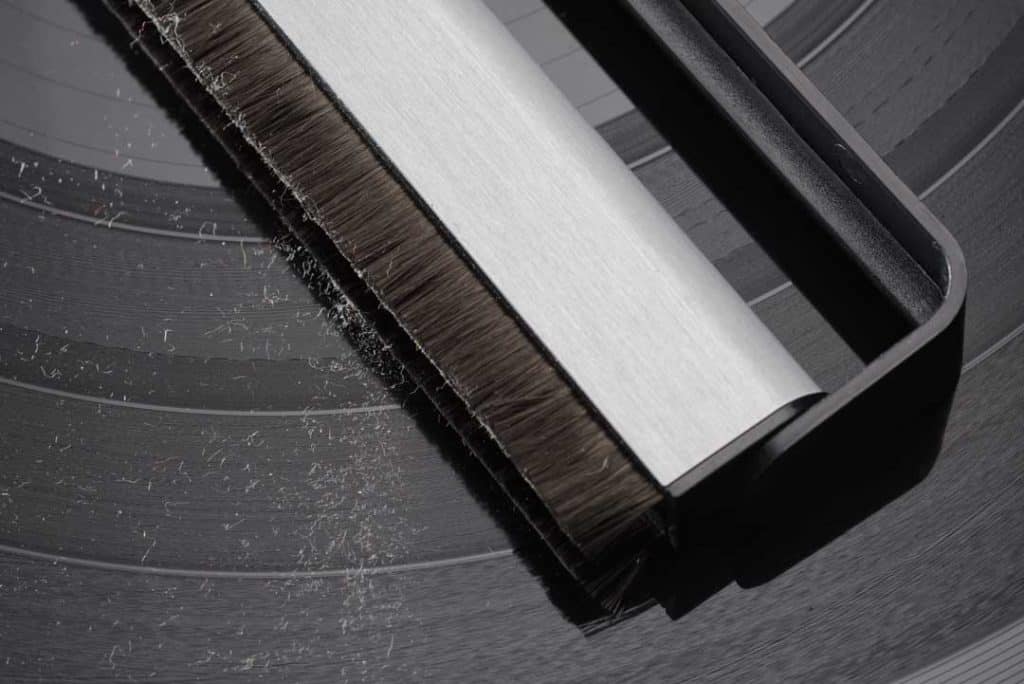
This article is not a how-to clean your vinyl records article but a brief overview of how to do this is using distilled water with a very small amount of liquid dish soap. Be sure you remove any larger contaminants from the record either with a record brush and cleaning solution or rinse with water.
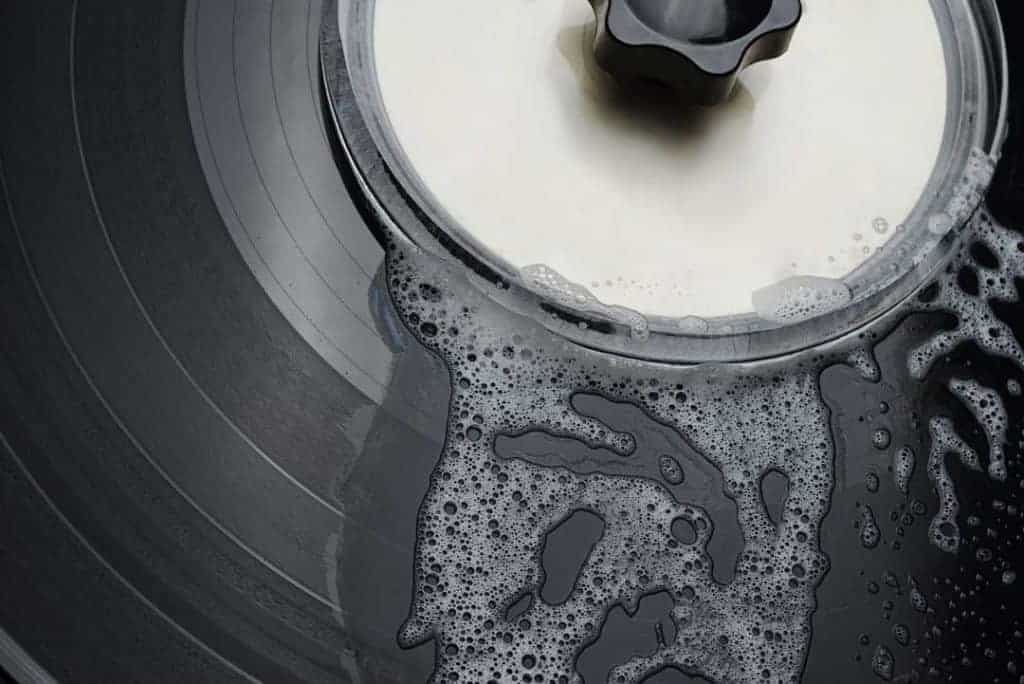
How To Dry Wet Vinyl Records And Preserve Sound Quality
There are multiple ways to dry wet vinyl records. Something that is very important to keep in mind when using any cleaning method but particularly with water is that the records are completely dry and we mean completely. The water can and will cause damage to the grooves due to temperature. So we have a few methods for drying that we recommend.
- One is simply pat dry with a lint-free towel and leave sitting out to dry overnight or for a few hours.
- Another method is to sit in a dish rack to dry.
- We really like combining those two. Pat dry then leave out to dry in a dish rack.
- A really great way to dry that we also recommend helping speed up the process is the Vinyl Vac used in combination with a small shop vac. Just make sure you use an old turntable or a lazy susan of some type so you can spin the record while vacuuming the water off.
If you just spilled water on the sleeve or jacket blot or pat your towel on the wet item. Do not wipe whatever you do, DO NOT WIPE. This can cause additional damage to the artwork or cardboard. If you just spilled water on the vinyl record itself pat dry with a lint free towel.
How Do You Clean A Water Damaged Vinyl Record?
This is one of those questions that is difficult to answer without knowing what happened to the records themselves and what is damaged. If you are talking about the sleeves or the outer jacket unfortunately there is nothing you can do about the water damage on them. There may be ways to minimize the damage such as blotting the water if it just got on the jacket.
If you just spilled water on the sleeve or jacket blot or pat your towel on the wet item. Do not wipe whatever you do, DO NOT WIPE. This can cause additional damage to the artwork or cardboard. Unfortunately, if you got the inner paper sleeve wet there is likely no saving them. The good news is that inner paper sleeves are very cheap to replace. We do recommend you pick up some antistatic inner sleeves.
If you have some pieces of the inner sleeve stuck to the vinyl record water will easily take this off. If you have mold on your records of white water spots the good news is that a little water or record cleaner solution should easily remove these. Just be sure to protect the center label as you do this.
Cleaning Vinyl Records After A Flood
The way we would recommend cleaning your collection after a flood is to first assess your damage to see what was impacted like the sleeves, jackets, or labels, etc. We would recommend if you have a smaller amount of records just give them a proper cleaning and replace the sleeves if needed. If the outer jacket is completely destroyed you can get some generic ones to protect your albums.
If you had a flood and you noticed that your records were affected just realize that mold will set in within 48-hour of something getting wet. This means you need to get them cleaned and dried as soon as possible. If you did not get to them in time just proceed with cleaning.
Make sure you protect your label while cleaning. Use distilled water with a very small amount of liquid dish soap. Be sure you remove any larger contaminants from the record either with a record brush and cleaning solution or rinse with water. This should take off most if not all mold. Pat dry with a lint-free cloth and allow to completely dry before playing them.
Does Water Ruin Records? Wrapping This All Up
As you can see water may not be the most ideal thing to get on or around your collection but this should not be the end of the world. We encourage you to just take a breath and walk through the process of cleaning and drying your records thoroughly and you should be ok. If you got water on your jackets or sleeves and waited too long there is not much you can do to save them but it’s really not the end of the world unless you were trying to sell them. Water damage does severally damage the value of the album.
Happy listening, and we hope you enjoyed the read.
Frequently Asked Questions – Record Storage? Sleeves?
Does water ruin vinyl records?
Yes, water can damage vinyl records if they get wet but if you follow this guide you’ll be on your way to ensuring they are fine.
How can water damage the record?
When water comes into contact with vinyl, it can cause mineral deposits in the grooves, the label to peel off, and the grooves to become dirty or even moldy.
Can moisture from the air also damage vinyl records?
Yes, excess moisture in the air can contribute to mold and mildew growth on vinyl records.
What precautions should I take to prevent water damage?
To minimize the risk of water damage, it is important to store your records in a cool, dry place away from direct sunlight and water sources. Using outer sleeves and keeping the records in an upright position can also help protect them.
How should I clean records that have been exposed to water?
If your records have been water-damaged, it is best to air dry them as quickly as possible. Once they are dry, you can use a record cleaning kit or a mixture of mild soap and water to gently clean the record surface. Make sure to handle the records with care to avoid causing further damage.
Can I still play a water-damaged record?
Playing a water-damaged record can potentially harm your turntable’s needle and cause the record to skip or produce poor audio quality. It is recommended to avoid playing a record that has been water-damaged until it has been properly cleaned and assessed for any structural issues.
Can I prevent mold and mildew growth on vinyl records?
Storing your records in a cool and dry environment can help prevent mold and mildew growth. Additionally, using outer sleeves and regular cleaning can also reduce the risk of mold and mildew.
Is it safe to use a record cleaning kit?
Yes, using a record cleaning kit specifically designed for vinyl can safely and effectively clean your records without causing any harm.
Should I store my vinyl records in a basement?
Storing records in a basement is generally not recommended as basements are often more prone to moisture and mold growth. It is best to choose a cool, dry, and well-ventilated area for storage. Learn how to store vinyl records.
How can I organize and safeguard my vinyl record collection?
To organize and safeguard your vinyl record collection, you can use plasticizers, outer sleeves, and proper storage techniques. Keep them in a dedicated area away from moisture and extreme temperatures, and handle them with care to ensure their longevity.

